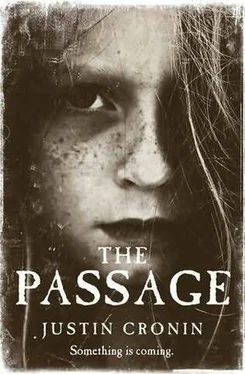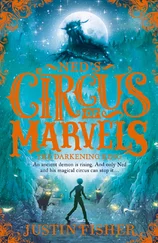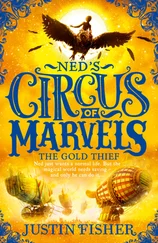Grey .
The light was in him now, but it wasn’t blue; that was the funny thing. The light was a warm orange color, and throbbing like a heart. Part of his brain said, You are asleep, Grey; you are asleep and dreaming . But another part, the part that was actually in the dream, took no mind of this. He moved through the pulsing orange light.
Grey. I am here .
The light was different now, golden; Grey was in the barn, in the straw. A dream that was a memory, but not exactly: he had straw all over him from rolling around in it, sticking to his arms and face and hair, and the other boy was there, his cousin Roy, who wasn’t his real cousin, but he called him that; and Roy was covered too, and laughing. They’d been rolling around, fighting, sort of, and then the feeling of it changed, the way a song changed. He could smell the straw, and his own sweat mixing with Roy’s, all of it combining in his senses to make the smell of a summer afternoon as a boy. Roy was saying, quietly, It’s okay, take off them jeans, I’ll take mine off too, ain’t nobody coming. Just do like I do, I’ll show you how it’s done, it’s the best feeling in the world. Grey knelt beside him in the straw.
Grey. Grey .
And Roy was right; it was the best feeling. Like climbing a rope in gym class only better, like a big sneeze building inside him, starting from down low and climbing up through all the hallways and alleyways and channels inside him. He closed his eyes and let the feeling rise.
Yes. Yes. Grey, listen. I am coming .
But it wasn’t just Roy with him, not anymore. Grey heard the roar and then the footsteps on the ladder, like the song changing again. He saw Roy one last time from the corner of his eye and he was all burned up and smoking. His father was using the belt, the heavy black one, he didn’t need to see it to know, and he buried his face in the straw as the belt fell across his bare back, slapping and ripping, again, again; and then something else, deeper, tearing at him from the inside.
You like this, is this what you like, I’ll show you, be quiet now and take it .
This man-he wasn’t his father. Grey remembered now. It wasn’t just the belt he was using and it wasn’t his father who was using it; his father had been replaced by this man, this man named Kurt who’ll be your daddy now , and by this feeling of being torn up inside, the way his real father had torn himself up in the front seat of his truck on the morning it had snowed. Grey couldn’t have been more than six years old when it happened. He awoke one morning before anyone else was up and about, the light of his bedroom floating with a glowing weightlessness, and right away he knew what had called him out of sleep, that snow had fallen in the night. He threw the cover aside and yanked back the drapes of his window, blinking into the smooth brightness of the world. Snow! It never snowed, not in Texas. Sometimes they got ice but that wasn’t the same, not like the snow he saw in books and on TV, this wonderful blanket of whiteness, the snow of sledding and skiing, of snow angels and snow forts and snowmen. His heart leapt with the wonder of it, the pure possibility and newness of it, this marvelous, impossible present waiting outside his window. He touched the glass and felt the coldness leap onto his fingertips, a sudden sharpness, like an electric current.
He hurried from the window and quickly drew on jeans, thrust his bare feet into sneakers, not even bothering to tie the laces; if there was snow outside, he had to be out there in it. He crept from his room and down the stairs to the living room. It was Saturday morning. There’d been a party the night before, folks over to the house, lots of talk and loud voices that he’d heard from his room, and the smell of cigarettes that even now clung to the air like a greasy cloud. Upstairs, his parents would sleep for hours.
He opened the front door and stepped onto the porch. The air was cool and still, and there was a smell to it, like clean laundry. He breathed it in.
Grey. Look .
That was when he saw it: his father’s truck. Parked like it always was in the drive, but something was different. Grey saw a splash of dark red, like a squirt of spray paint, on the driver’s window, darker and redder because of the snow. He considered what he was seeing. It seemed like it might be some kind of joke-that his father had done something to tease him, to play a game, to give him something funny and strange to see when he got up in the morning before anybody else was awake. He descended the stairs of the porch and stepped across the yard. Snow filled his sneakers but he kept his eyes locked on the truck, which gave him a worried feeling now, like it wasn’t the snow that had called him out of sleep but something else. The truck was running, pushing a gray smear of exhaust onto the snowy drive; the windshield was fogged with heat and moisture. He could see a dark shape pressed against the window where the redness was. His hands were little and he had no strength but still he’d done it, he’d opened the door of the truck; and as he did, his daddy tumbled past him and onto the snow.
Grey. Look. Look at me .
The body had landed face-up. One eye was pointed up at Grey, but really at nothing; Grey could tell that right off. The other eye was gone. So was that whole side of his face, like something had turned it inside out. Grey knew what dead was. He’d seen animals-possums and coons and sometimes cats or even dogs-broken to pieces on the side of the road, and this was like that. This was over and out. The gun was still in his daddy’s hand, the finger curling through the little hole the way he’d showed Grey that day on the porch. See now, see how heavy it is? You never ever point a gun at anyone . There was blood everywhere too, mixed in with other stuff, like bits of meat and white pieces of something smashed, all over his daddy’s face and jacket and the seat of the truck and the inside of the door, and Grey smelled it, so strong it seemed to coat the insides of his mouth like a melting pill.
Grey, Grey. I am here .
The scene started changing then. Grey felt movement all around him, like the earth was stretching; something was different about the snow, the snow had started moving , and when he lifted his face to look, it wasn’t snow he saw anymore but rabbits: thousands and thousands of fluffy white rabbits, all the rabbits in the world, bunched so closely together that a person could walk across the yard and never touch the ground; the yard was full of rabbits. And they turned their soft faces toward him, pointed their little black eyes at him, because they knew him, knew what he had done, not to Roy but to the other ones, the boys with their knapsacks walking home from school, the stragglers, the ones who were alone; and that was when Grey knew that it wasn’t his daddy anymore, lying in the blood. It was Zero, and Zero was everywhere, Zero was inside him, ripping and tearing, emptying him out like the rabbits, and he opened his mouth to scream but no sound came.
Grey Grey Grey Grey Grey Grey Grey .
In his office on L2, Richards was sitting at his terminal, his mind deep inside a game of free cell. Hand number 36,592, he had to admit, was squarely kicking his ass. He’d played it a dozen times already, coming close but never quite figuring out how to build his columns, how to clear out all the aces when he needed to, to free up the red eights. In that sense it reminded him a little of game 14,712, which was all about the red eights, too. It had taken him most of a day to crack that one.
But every game was winnable. That was the beauty of free cell. The cards were dealt, and if you looked at them right, if you made the right moves, one after the other, sooner or later the game was yours. One victorious click of the mouse and all the cards sailed up the columns. Richards never got tired of it, which was good, because he still had 91,048 games to go, counting this one. There was a twelve-year-old kid in Washington State who claimed to have won every hand, in order-including 64,523, the death’s head of free cell-in just under four years. That was eighty-eight games a day, every day, including Christmas, New Year’s, and the Fourth of July, so assuming the kid took a day off every now and again, to do kid things or even just come down with a good case of the flu, the real number was probably more like a hundred. Richards didn’t see how that was possible. Didn’t he ever go to school? Didn’t he have homework? When did the little bastard sleep?
Читать дальше












